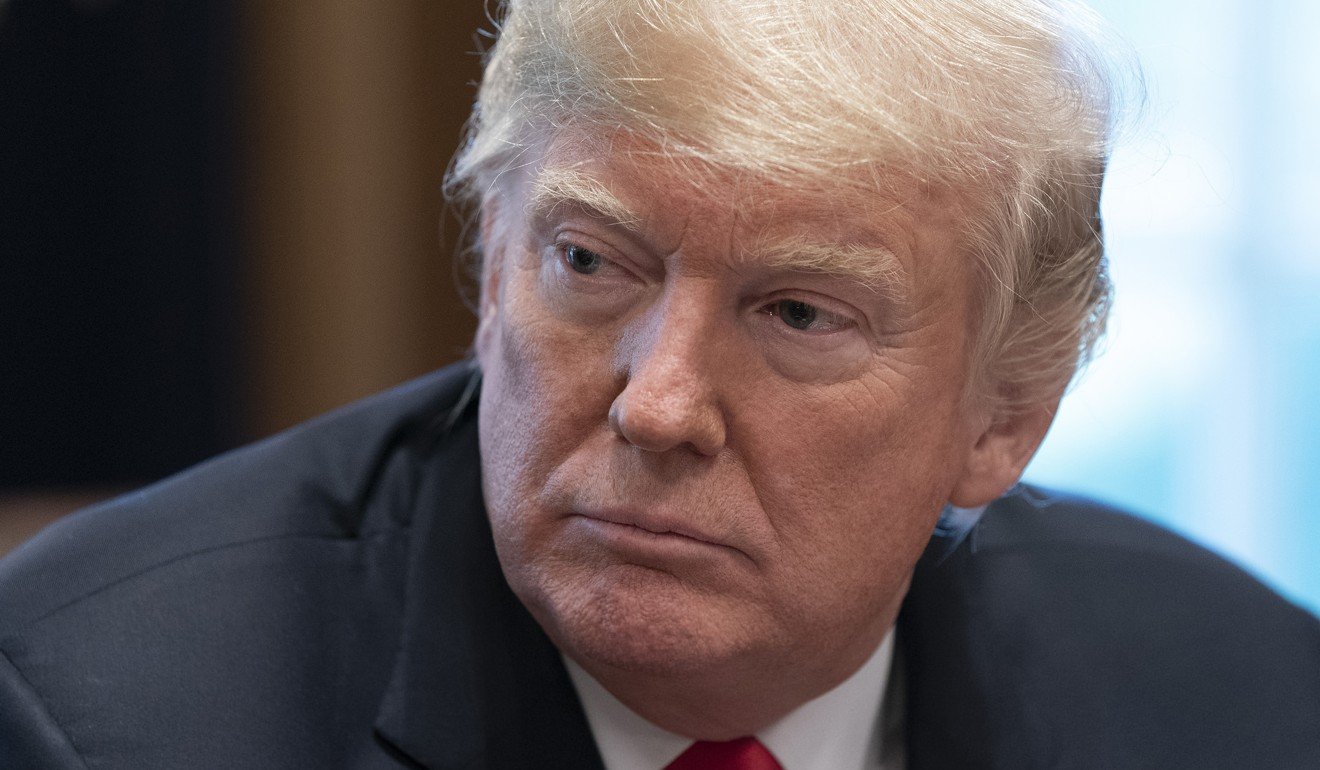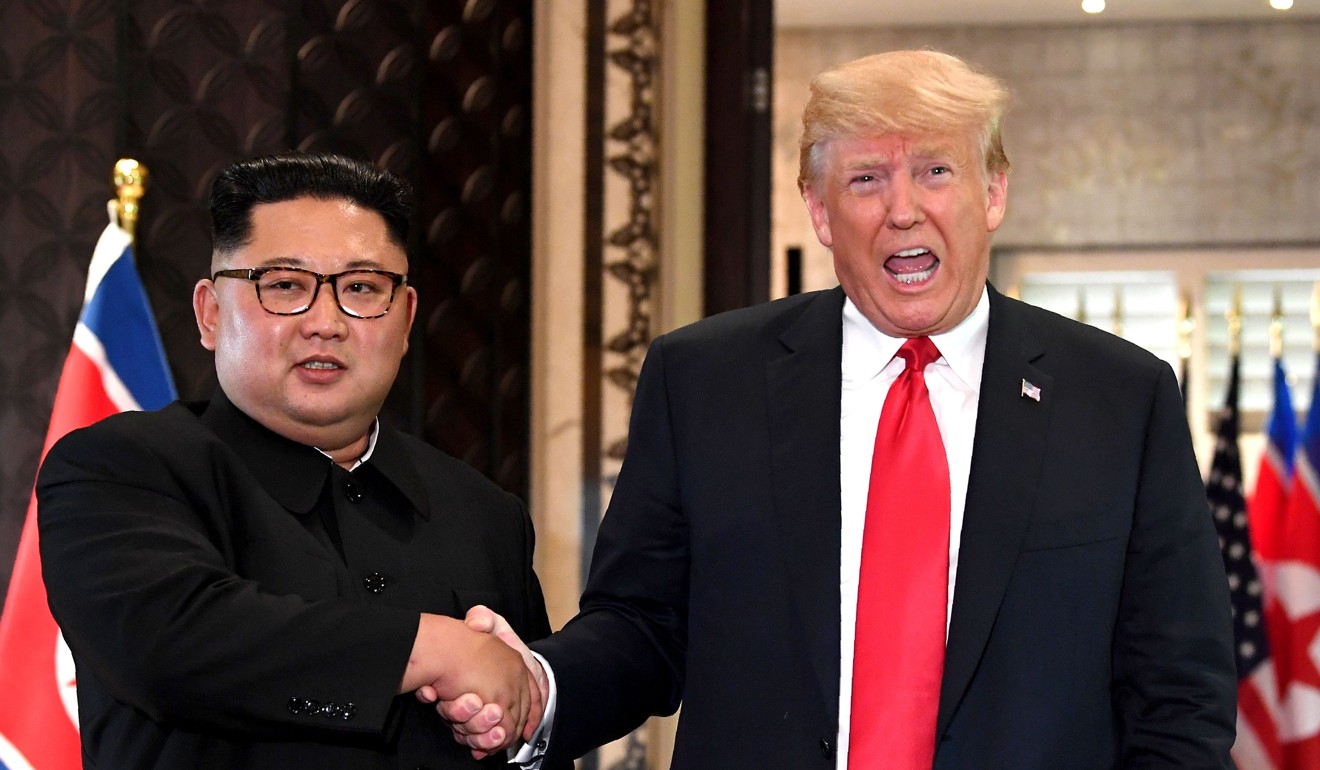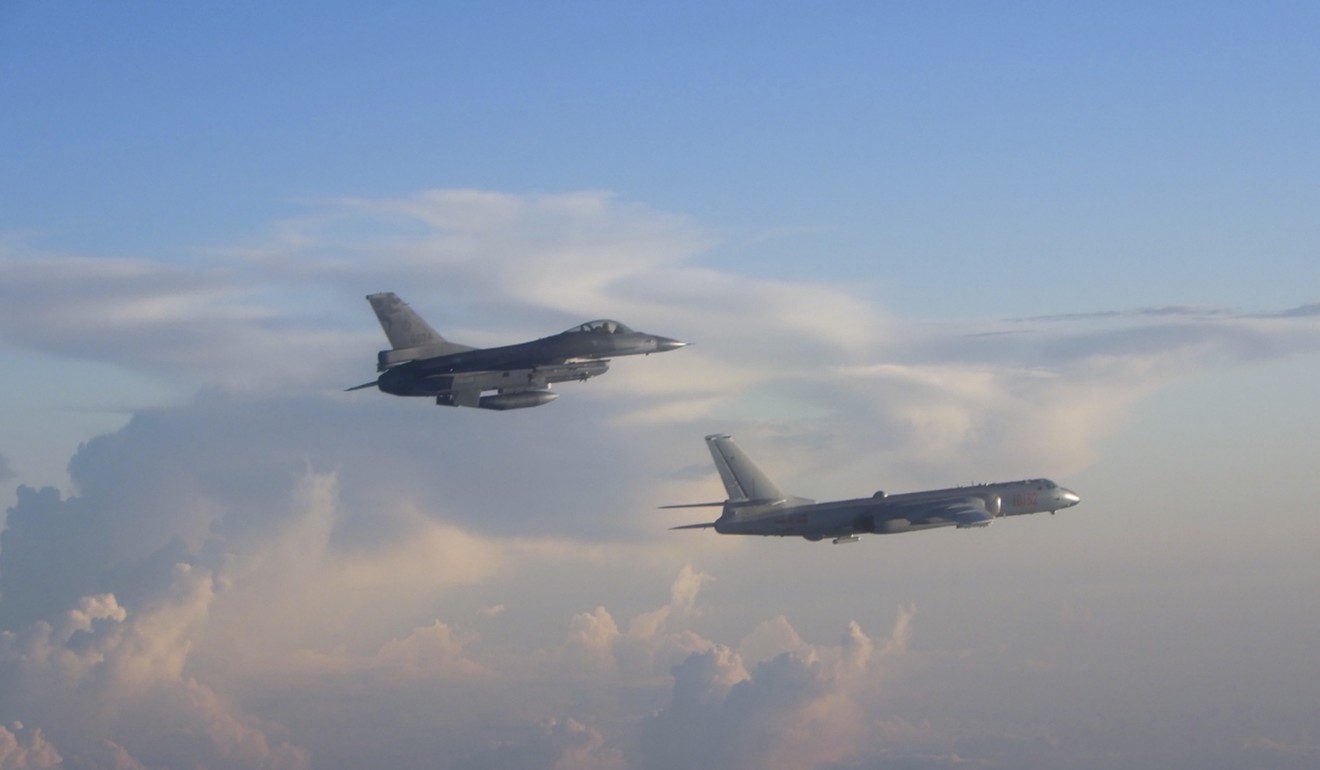Armed conflict over territorial disputes in the South China Sea could be one of the major crises for US President Donald Trump’s administration in 2019, according to an annual survey that identifies top flashpoints for US policymakers to watch in the year to come.
Besides the South China Sea pressures, the Council on Foreign Relations’ Centre for Preventive Action has for the first time ranked Taiwan as a hotspot to watch in its 2019 Prevention Priorities Survey.
The think tank also ranked renewed tensions over the failure of Washington’s talks with Pyongyang to get North Korea to remove its nuclear weapons; the potential for a “highly disruptive” cyberattack on critical US infrastructure and networks; and the prospects for hostilities between Iran and the US or its allies as other potential issues that could trigger action by the US government in the new year.
But Washington would have to juggle its responses to these potential hotspots amid its clash with Beijing over trade and other issues, according to the report, released on Monday.
Beijing and Washington are in the midst of a 90-day ceasefire in their months-old tariffs battle to allow for further talks, called when China’s president, Xi Jinping, met Trump in Argentina on December 1.
“The Donald J. Trump administration has yet to confront a serious international crisis in which the president has had to wrestle with the agonising decision over whether to commit the United States to a new and potentially costly military intervention,” the report said.
“With the world growing more disorderly in a variety of ways, it is reasonable to assume that it is only a matter of time before the Trump administration will face its first major crisis.”
Since 2008, the Centre for Preventive Action annually has asked foreign policy experts to rank 30 ongoing or potential conflicts based on their likelihood of occurring or escalating in the next year and their potential impact on US national interests. The survey’s aim is to highlight conflict prevention priorities for US policymakers.

For its 11th annual survey, the centre received 500 responses from US officials, foreign policy experts and academics to questions it distributed in November.
For the first time, respondents listed a potential US-China clash over the self-ruled island of Taiwan as a hotspot to watch, although they gave it a “tier-two” ranking.
They said China’s “intensifying political and economic pressure campaign” ahead of the island’s 2020 presidential elections was fuelling cross-strait tensions.
However, a threat of conflict in the East China Sea between China and Japan is no longer viewed as a top concern, despite the issue’s high ranking in previous surveys. The assessment of a lower likelihood for conflict comes amid warming ties between the nations.
In October, China’s president, Xi Jinping, and Japanese Prime Minister Shinzo Abe said Sino-Japanese relations had overcome “obstacles” and were moving “from competition to cooperation”.
The comments came as the leaders signed deals to prevent military clashes at sea and boost financial and economic collaboration.
Chang Ching, a military specialist at the Taipei-based Society for Strategic Studies think tank, said in an interview that the regional flashpoints identified by the report so far have been cautiously managed by the parties to avoid potential problems or dangers.
“As long as no negligence in political manoeuvres or miscalculation occur, the tensions may exist but no surprises should happen,” he said. “Knowing and addressing the risks is far better than ignoring the known risks. Negligence is a fatal factor in strategic calculus.”
US-China tensions have been on the rise over the South China Sea, leading Washington to increasingly criticise Beijing over its “militarisation” of the energy-rich waters, where China has overlapping claims with Vietnam, the Philippines, Malaysia and other countries.
In September, US and China warships nearly collided in the disputed maritime region. For its part, Beijing has consistently protested American “freedom of navigation” exercises in the area.
Wei Zongyou, an international relations professor at Shanghai’s Fudan University, downplayed the potential for conflict in the South China Sea, citing a draft agreement on a code of conduct between China and members of the Association of Southeast Asian Nations as evidence of the parties’ progress on a resolution to their differences in the region.
He was also optimistic that the US and China could avoid conflict in the area.

While the Trump administration has carried out as many as nine rounds of freedom of navigation operations, “China does not want military frictions or conflict with the US in the South China Sea, and neither does the US,” Wei said.
But the Korean peninsula remains a potential flashpoint for Washington amid a lack of discernible progress on the removal of nuclear weapons from North Korea, according to the report.
Prospects for peace have dimmed somewhat despite Trump’s high-profile Singapore summit with Kim Jong-un in September, after which the US president claimed that the reclusive state was “no longer a nuclear threat”.
The report said the potential for a US-North Korea war over the North’s nuclear weapons and ballistic missile programmes was a major cause for anxiety in 2018, and tensions could ratchet up again in 2019 if the fragile negotiations were to break down.
A rapid diplomatic rapprochement this year that culminated in the Singapore sit-down between North Korean leader Kim Jong-un and Trump in June suffered a setback after talks stalled on the removal of Pyongyang’s nuclear arsenal.

In Singapore, Trump and Kim signed a vaguely worded statement on denuclearisation, but no progress has been made from the agreement.
Of late, Pyongyang has taken to demanding sanctions relief and condemning Washington’s insistence on its nuclear disarmament as “gangster-like”. For its part, Washington has continued to push to maintain the punitive measures against the North until it delivers on a demand for “final, fully verified denuclearisation”.
“How issues on the Korean peninsula will unfold are uncertain,” Wei said. “If either the US or North Korea makes an unfriendly move, it may affect the already very fragile denuclearisation process.”
The report said Taiwan-related tensions are growing ahead of the 2020 presidential election as cross-strait relations between the mainland and Taipei have been frozen under independence-leaning Taiwanese president Tsai Ing-wen.
Beijing lays claim to the self-ruled island, which it views as a wayward province to be brought into line by force if necessary. Washington, however, has a mutual defence treaty with Taiwan and has long provided arms to the island.
“The possibility of violent conflict in the Taiwan Strait is not too high, even though the US may engage in arms sales with Taiwan and promote more US-Taiwan official and military exchanges, which will certainly impact cross-strait relations and Sino-US relations,” Wei said.
The report also highlighted as priorities the continued conflict in Syria, economic and political instability in Venezuela, the humanitarian crisis in Yemen, and increasing violence and instability in Afghanistan tied to the Taliban insurgency.
This article appeared in the South China Morning Post print edition as: South China Sea ‘could be a flashpoint’ for US next year



Geen opmerkingen:
Een reactie posten